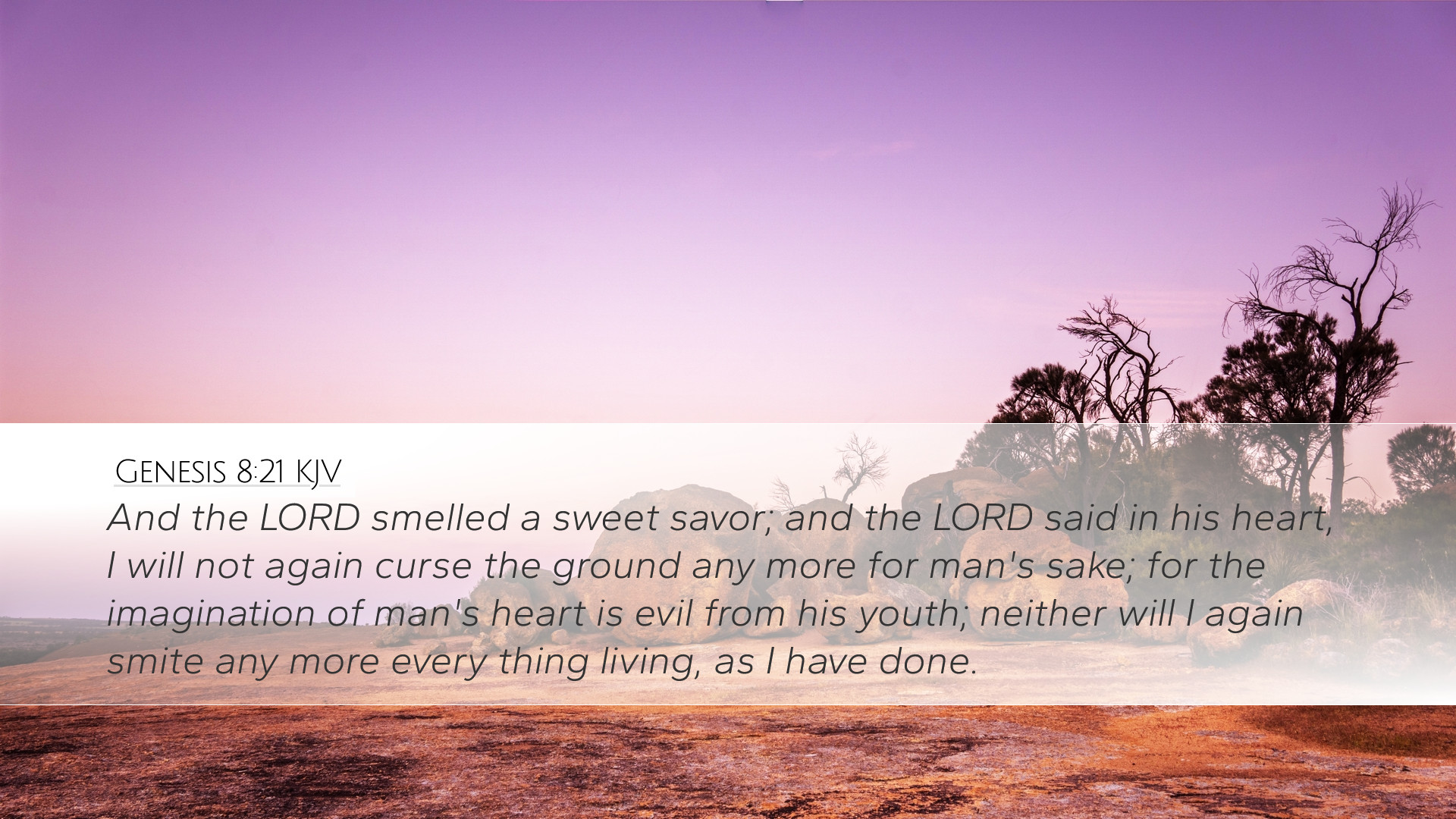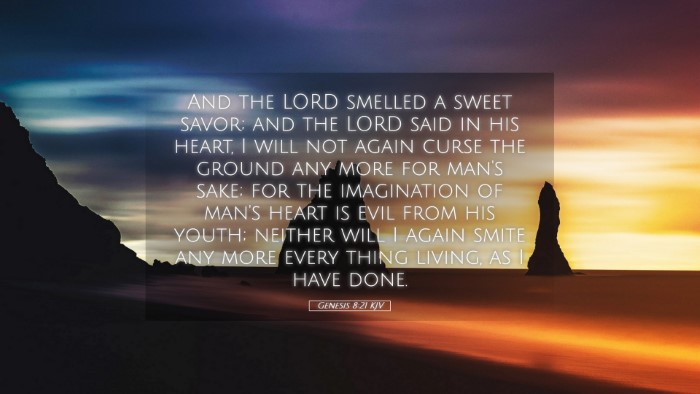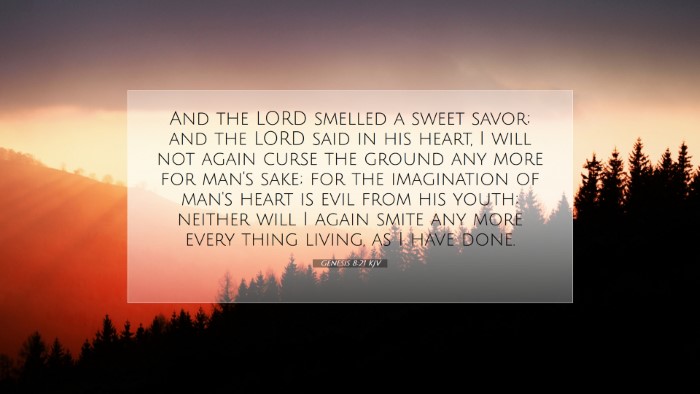Commentary on Genesis 8:21
Genesis 8:21 states, "And the LORD smelled a sweet savour; and the LORD said in his heart, I will not again curse the ground any more for man's sake; for the imagination of man's heart is evil from his youth; neither will I again smite any more every living thing, as I have done."
Introduction
This verse comes at a pivotal moment in the narrative of Noah's Flood, where God reflects on the covenant He establishes with creation following a period of divine judgment. The theological implications of this verse are profound, particularly in terms of God’s relationship with humanity, the nature of evil, and divine mercy.
Theological Insights
-
Divine Approval and Acceptance
According to Matthew Henry, the phrase "the LORD smelled a sweet savour" signifies God's acceptance of Noah's offerings. This notion relates to the idea of sacrifice, where the offering made by Noah is seen as an expression of devotion and gratitude after the calamities of the flood.
-
The Nature of God’s Promise
Albert Barnes emphasizes that this statement reflects a commitment from God not to destroy the world again through divine judgment, indicating a shift in the divine-human relationship. God’s resolve to forbear from future curses shows His mercy despite human depravity.
-
Understanding Human Evil
Adam Clarke notes that the phrase “for the imagination of man's heart is evil from his youth” suggests an inherent propensity towards sinfulness. This highlights the seriousness of the sinful nature of humanity, which the flood sought to address. However, God's mercy remains central, underscoring His desire to sustain life, despite humanity’s failings.
Contextual Analysis
This verse directly follows the account of the flood, thus drawing a clear connection between judgment and grace. As divine judgment subsides, it opens the door for God's unconditional love and promise...
-
The Flood as a Judgment
The flood represented a critical act of divine judgment against the pervasive sinfulness of humanity. However, God’s promise after the flood demonstrates that He is not only a God of judgment but also a God of salvation and restoration.
-
The Establishment of Divine Covenants
This verse in its essence sets a precedent for the covenants that follow in the biblical narrative and reinforces the need for a relationship between God and humanity that is based on grace rather than human merit.
The Implications for Humanity
In reflecting on God’s declaration in Genesis 8:21, we must consider the implications for the understanding of human nature within a theological context. Matthew Henry, Albert Barnes, and Adam Clarke all concur that...
-
Humanity’s Fallibility
The acknowledgment of the inherent evil suggests a continuous need for divine intervention and guidance. This sets the stage for future redemptive acts, ultimately culminating in New Covenant theology.
-
God's Patience and Mercy
God’s willingness to refrain from further destruction, despite humanity’s flaws, demonstrates His boundless mercy and patience, calling humanity to repentance rather than destruction.
Conclusion
Genesis 8:21 offers rich theological insights into God’s character and His approach towards humanity. The verse encapsulates the themes of sacrifice, divine mercy, human depravity, and the establishment of a covenant relationship. As scholars and theologians examine this text, the duality of God’s justice and mercy becomes increasingly evident, emphasizing that while God disapproves of sin, He is also a God of grace who desires a redemptive relationship with His creation.


